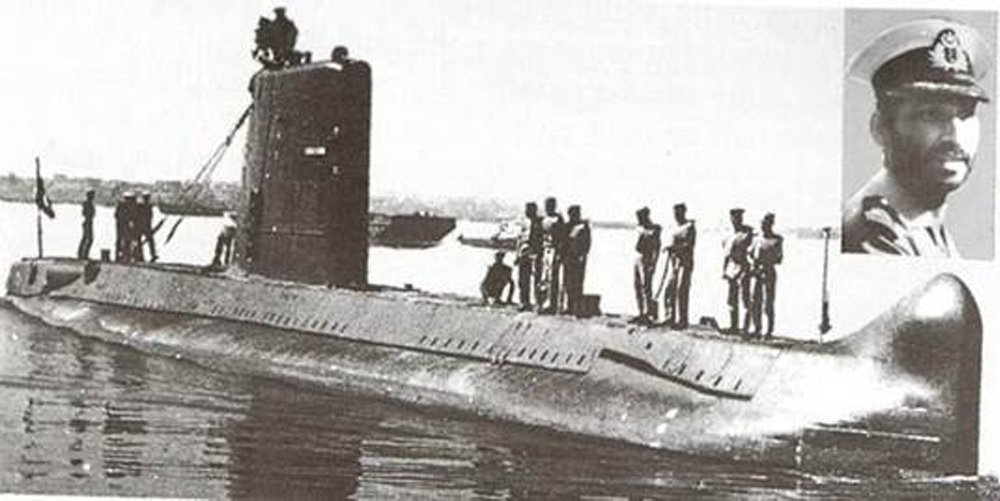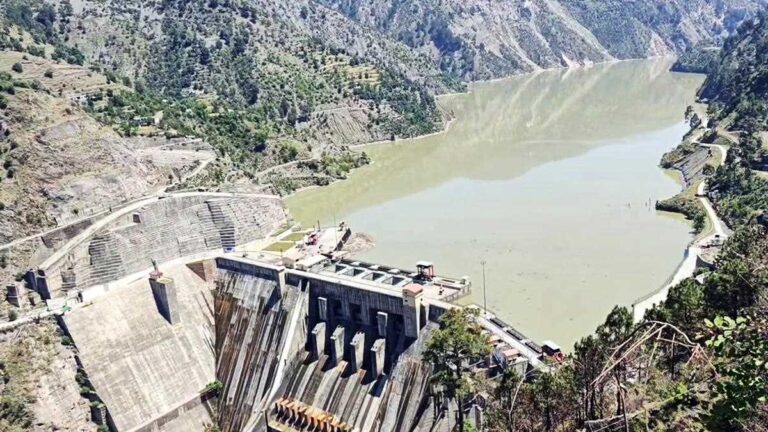
Source: https://www.brecorder.com/news/40213542
Rabia Akhtar
Begin by asking yourself this question: If May 2025 had not stopped at 87 hours, what would we remember?
Crisis runs on two clocks.
Your clock is lit by glass – measured in refreshes, reposts, breaking banners. It shortens attention until the present feels only a few seconds deep. It rewards speed over structure and replaces memory with momentum. It makes certainty look like a virtue and nuance look like delay.
The sea’s clock is cut from different material. It is measured in bearings, battery, depth, and courage. It lengthens attention until the present can carry weight. It rewards patience over posture and replaces noise with discipline. It makes certainty earn its keep and holds action to the standard of consequence.
On a hypothetical Night Four of May 2025, had it arrived, only one clock would have mattered. Not the one that sprints; the one that holds. Not the one that declares; the one that decides. The clock the ocean keeps, slow, exact, decisive, the clock that a small Pakistani submarine mastered in 1971.
Because beneath the noise of any modern crisis lies the same old test: can you separate what is urgent from what is important, and then do only what matters?
Hangor: The Lesson Beneath the Surface
The ocean does not reward performance but what it does reward is craft. In December 1971, a Daphne-class submarine, PNS Hangor, worked its way along the Arabian Sea with the modest confidence of a crew that trusted its training. The tools were unromantic: a good ear, a steady boat, a commander’s judgment. The task was precise: find, fix, and, only if required, finish.
Contact came near the Kathiawar coast: Indian Navy escorts hunting for a kill. The undersea picture was a collage of tones and intervals, propellers biting water, hulls carrying their own signatures, the ocean folding and unfolding sound. Hangor’s crew built that picture patiently. They measured, they listened, they verified. The captain, Commander Ahmed Tasnim, chose his moment.
When INS Khukri crossed the geometry that mattered, the decision was short and clean. A weapon left the tube; noise met metal; a ship that had been a fact a minute earlier became a memory a minute later. Another Indian ship INS Kirpan broke contact. The Arabian Sea’s calculus shifted in a single act: small platform, large consequence.
There was no live feed. No rolling ticker. No statements mid-engagement. Only the terse language of accountability, the kind the ocean understands. For Pakistan, Hangor’s success was pure credibility. For India, Khukri’s loss was not a talking point; it was a human cost borne by officers and sailors who did their duty. To recognize both is to remain honest about what war asks of those who serve.
Hangor’s 9 December 1971 strike on INS Khukri – the first wartime submarine sinking of a warship since WWII – set the standard for disciplined decisiveness at sea; May 2025 showed the same grammar in the sky as the PAF paired restraint with precision.
Hangor is a template for decision-making in a noisy age. It shows that deterrence is sustained by competence plus restraint, and that decisive action is the last step of a long, disciplined sequence: detect, discriminate, position, decide. It reminds us that only visibility is not power; position is also power. It shows that patience can be an instrument, not an alibi. And it insists that even in conflict, dignity belongs to all sides, an ethic as strategically useful as it is morally necessary.
If Night Four had come in 2025, the ocean’s clock would have yet again been the only reliable one again. The lesson would not have changed: find the signal, ignore the bait, act once, and let consequences, not captions, do the talking.
That is why we return to Hangor. We return not to polish nostalgia. We return to recover an operating system for judgment. In an era where escalation has a user interface, the undersea story teaches the opposite rhythm: do the slow work well, so that the fast moment is clean.
For many in today’s Pakistan, the wars that shaped our parents and grandparents’ vocabulary of courage feel like sepia photographs: names on plaques, dates in textbooks, parades we catch on television. May 2025 was different. It arrived on your phones, in your group chats, in your sleep cycles. It felt like your life, because it was your life. The noise wrapped around your day and called itself information.
So let me place these two moments together: Hangor’s silence and our noise.
The first is a story of restraint and craft. Men trained to listen longer than they speak. Decisions weighted by distances you cannot see. A small platform closing a large question.
The second is a story of a public square that can amplify anything in seconds. Narratives outrun facts. Speed tempts leaders and citizens alike. We start to believe that visibility is power.
Hangor is a reminder that visibility is not power. Power is positional and professional. It is a crew that knows its boat, a commander who knows his ocean, and a service that knows when to act and when to hold fire. It is technical mastery and moral sobriety. It is the courage to be precise when the world rewards performance.
If May 2025 taught this current generation anything, it is that escalation now has a user interface. You witnessed how images and claims, some authentic and some engineered, tried to write events in real time. You learned how quickly speculation settles into belief, and belief hardens into pressure. You felt, perhaps for the first time, the strange intimacy of modern crisis: the front line in your palm.
Hangor teaches the opposite rhythm. It says: find the signal. Then verify. Then decide. It says that silence, when chosen wisely, is not fear. It is discipline.
There is a second thread that ties the two moments: deterrence is human. We speak of missiles and ranges and thresholds, but the center of the story is judgment. Hangor’s torpedoes were real, but what truly shaped the sea that week was an accumulation of human choices: which contact to track, which approach to set, which moment to seize. In May 2025, the systems were more complex, the sensors more numerous, the timelines tighter. Still, the hinge was human. It always is.
So what does this mean for a generation whose first living memory of crisis is May 2025?
When I teach the Hangor episode to students born into broadband, I do not offer it as nostalgia. I offer it as architecture. It shows how small choices, aligned with skill and purpose, can redraw a map. It shows how deterrence is sustained not by noise, but by credibility. It shows that the language of security, whether in 1971 or 2025, requires fluency in two dialects: technology and judgment.
Hangor teaches us several lessons.
First. learn to hear beneath the surface. Algorithmic feeds deliver volume, not structure. Craft your own sonar: mentors who challenge you, histories that do not flatter you, disciplines that slow you down enough to separate signal from noise.
Second, respect the quiet professions. The loudest narratives in crisis are not the only ones that keep you safe. Seamanship, logistics, air defense crews, comms officers, analysts, these are the arts of continuity. They seldom trend. They always matter.
Third, measure before you move. In a fast world, patience looks like passivity. It is not. Hangor did not hesitate because it was unsure; it waited because it was sure. Calibrated action deters better than constant motion.
Fourth, ask for better leadership and be ready to become it. Crises will come disguised as content. We will need leaders who can resist the timeline, choose the long view, and remember that restraint can be an instrument, not an apology.
In the end, the ocean remains the best editor of our myths. It keeps our words short. It keeps our claims proportional. If May 2025 felt like an age of shouting, Hangor is a page of careful handwriting.
Perhaps that is the point of juxtaposing them. The modern crisis tells you that everything is urgent. The old story tells you that not everything is important. Your task is to learn the difference, and then live by it.
On some future night, when your feed insists that history is being written in the latest clip, remember the boat that moved unseen, the crew that chose their moment, and the signal that changed a sea. Remember that power is not always how brightly you shine in the storm, but sometimes also how steadily you steer beneath it.
Prof. Dr. Rabia Akhtar is Dean Faculty of Social Sciences and Director Center for Security, Strategy and Policy Research (CSSPR) at University of Lahore. She is also the Editor of Pakistan Politico.





